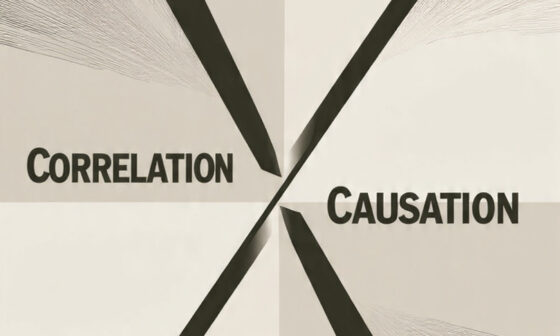I am sure that you know that we live in an age where popularity often gets mistaken for truth. The number of likes, shares, or followers can make an idea appear credible, even when it is total nonsense. From the viral social media posts to mass political movements, it is easy to assume that “if everyone believes it, then it must be right.” But that is exactly where the Bandwagon Fallacy quietly deceives us.
The Bandwagon Fallacy occurs when we accept a belief or make a decision simply because many others do. It is the logical error of equating popularity with validity and truth, mistaking the loudness of the crowd for the clarity of reason.
What the Bandwagon Fallacy Really is
In logic, the Bandwagon Fallacy also known as the appeal to popularity or argumentum ad populum, assumes that if something is widely believed, it must be true or good.
And it sounds like this:
- “Everyone is investing in this stock; it must be a smart move.”
- “Most people think this diet works, so it must be healthy.”
- “Everyone is doing it, why shouldn’t I?”
But the thing is this: Truth is NOT democratic. A million people can be confidently wrong. History is filled with examples, from geocentrism, to smoking being considered healthy where the crowd was passionately, and unanimously mistaken.
Why We Fall for the Bandwagon Fallacy
The Bandwagon Fallacy exploits one of our most primal instincts: The need to belong. From childhood, we have been wired to look to others for cues about what is safe, normal, or acceptable. And in prehistoric times, that instinct helped us survive, but in today’s world, it can cloud our judgment.

When we see others supporting an idea, we experience social proof, a psychological bias that tells us, “If everyone agrees, they can not all be wrong.” But boy oh boy they can! They can all very very very very much be confidently wrong! And many times, they are.
Social media amplifies this bias, with algorithms that reward what is popular, not what is true. As a result of that our feeds become echo chambers, that just reinforces what the majority already believes, while silencing our critical thought.
Independent Critical Thinking: The Antidote to the Herd Mentality
Philosophers, thinkers, and reformers throughout history have warned against blind conformity. From Socrates who questioned the beliefs of his society. To Galileo who defied the scientific consensus of his time. And most importantly, Jesus, in John 7:7, said the world would hate him because he testified that its deeds were evil, a reminder that truth often stands in opposition to the crowd. And that reminds me of an article I wrote not long ago.
In order to be able to think, you have to risk being offensive. – Jordan B. Peterson
Thinking, truly thinking is not always a safe act; I mean it is not always a polite conversation. It is not a rehearsed speech of what others already agree with, even if you are saying the same thing word for word. To think is to wrestle with reality, to test the limits of your own assumptions, and to confront truths that may make others, and even yourself, uncomfortable.
But in a culture that prizes comfort over conviction, silence over sincerity, many would rather avoid offense than risk the discomfort of truth. And as Peterson often says, “If you are speaking, you are going to offend someone; that is what speaking is.” The question, then, is not whether we will offend, but whether we will have the courage to pursue truth even when it disrupts the peace.
Continue Reading: The Courage to Think: Why Truth Often Offends Before It Enlightens
Being a thinker in a world of followers means being willing to stand alone sometimes, not because you want to just be a rebel but very very much because you want to ask, “Is this true?” instead of just doing what most people think is true.
To resist the Bandwagon Fallacy, you must:
- Pause before agreeing. Do NOT let popularity rush your judgment.
- Ask for evidence. What supports this idea, beyond the number of people who believe it?
- Stay humble. The crowd can be wrong, but so can you. Truth requires openness, not arrogance.
- Think slowly. Wisdom rarely shouts; it often whispers.
The Courage to Think Differently
It takes courage to step off the bandwagon. When everyone else is cheering, silence feels like rebellion, but that is where integrity begins, in the quiet space where you refuse to outsource your thinking.
The Stoic philosopher Epictetus said, “Do not explain your philosophy. Embody it.” Thinking differently means living differently, even when it is unpopular. It means seeking truth, not trends; wisdom, not approval.
In order to be able to think, you have to risk being offensive. – Jordan B. Peterson
Jordan B. Peterson once noted, “People think that thinking is the same as agreeing or being nice, but it is not. Thinking is a form of confrontation.”
To think critically is to enter a kind of tension between what is and what could be, between the familiar and the uncomfortable. It is the same tension Socrates embraced when he asked inconvenient questions in Athens; his probing was not meant to insult but to illuminate, yet it still led to his death.
Continue Reading: The Courage to Think: Why Truth Often Offends Before It Enlightens
Read Also: Truth Has Rules: The Basic Laws of Logic and Objective Thinking
Read Also: Standing For The Truth Regardless Of How You Feel
Read Also: Solomon Asch Conformity Experiment Study
Conclusion
The Bandwagon Fallacy reminds me that being surrounded by agreement does not mean I am surrounded by truth, and that popularity is NOT proof! The crowd is NOT always right!
So my dearest readers, my challenge to you today is to think independently! To question confidently! And to remember that the goal is not to fit in, but to see clearly! Because and in the end, truth does not need a majority vote to be true, and it only needs one honest mind willing to search for it.





